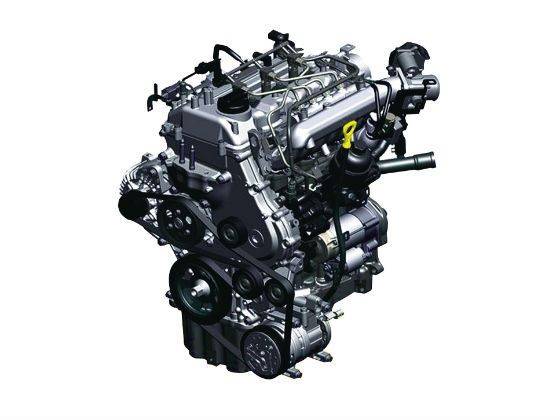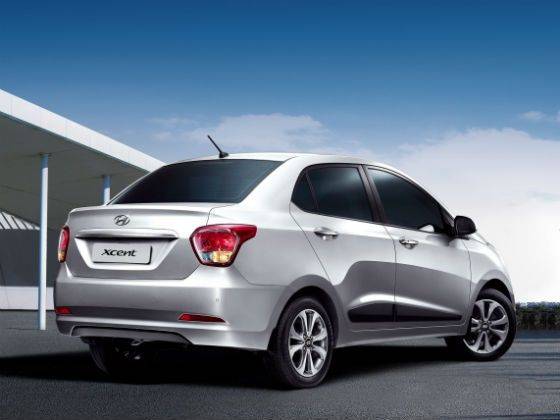Hyundai's latest compact sedan offering comes with a petrol and diesel engine. Which one suits you best?
There are only two reasons why you will buy an Xcent over the Grand i10… the larger boot that comes with the sedan body style and the slightly more powerful diesel engine. The Hyundai Xcent gets 407 litres of boot space which is the best in class in the compact sedan category. While we don’t have details on the vehicle weight yet, we presume it will be between 50-100 kg heavier than the Grand i10. The diesel Xcent comes with marginally uprated power figures to the Grand i10. While the figures show an increase in low and mid range torque, the extra weight might nullify the engine’s added performance. We will get a clearer picture towards the end of the month though once we drive the Hyundai Xcent. But on the face of it, once you have decided to buy an Xcent, which one will you go for? Petrol or diesel, it’s not as easy a decision as it seems.
Mechanically, since the Xcent and the Grand i10 are identical, the Xcent will not disappoint. The Grand i10 is one of the better engineered Hyundais we have come across in terms of car dynamics so the Xcent too should be a nice car to drive. The steering feels effortless, the suspension setup is ideal and the engines on offer are quite potent for this class of car. The petrol engine is the venerable 1.2 litre kappa engine developing 83PS of power and 114Nm of torque. It is an absolute gem and a major reason for the success of the i10 in India. The diesel engine is the 3-cylinder 1.1-litre mill from the Grand i10. It has been tweaked for the Xcent to produce 72PS which is 1PS more power and crucially 180Nm of torque, that’s 20Nm extra. It translates to better driveability as most of the torque is developed in the lower half of the rev band.
So there won’t be any surprises then with the Xcent on the road. Once you’ve made your choice of car, it’s the amount you write the cheque for that matters most so let’s see whether the petrol or diesel suits your usage better. Spec for spec, the Xcent petrol is cheaper by about Rs 90,000 compared to the Xcent diesel. These days with the ever changing fuel price scenario it isn’t easy to predict if your purchase now makes good financial sense and you end up buying the diesel car since it returns better mileage and it is cheaper at the pumps. Take a look at the three cases on the next page and make your purchase based on the amount of running you expect your car to go through.

Xcent Petrol
|
Xcent Diesel
| |
Base variant Price (Ex-showroom Delhi)
|
Rs 4.66 lakh
|
Rs 5.56 lakh
|
ARAI certified fuel economy
|
19.1kmpl
|
24.4kmpl
|
Cost of fuel in Delhi
|
Rs 73.16/litre
|
Rs 55.48/litre
|
Average running per year (1)
|
10,000km
|
10,000km
|
Fuel consumed (1)
|
10,000/19.1=524 litres
|
10,000/24.4=410 litres
|
Cost of fuel
|
524x73.16=Rs 38,000
|
410x55.48=Rs 22,750
|
Average running per year (2)
|
15,000km
|
15,000km
|
Fuel consumed (2)
|
15,000/19.1=785 litres
|
15,000/24.4=615 litres
|
Cost of fuel
|
785x73.16=Rs 57,400
|
615x55.48=Rs 34,100
|
Average running per year (3)
|
20,000km
|
20,000km
|
Fuel consumed (3)
|
20,000/19.1=1047 litres
|
20,000/24.4=820 litres
|
Cost of fuel
|
785x73.16=Rs 76,600
|
615x55.48=Rs 45,500
|
In case one when you are driving only 10,000 km every year, the amount spent at the pumps will be Rs 15,250 less in the diesel Xcent. This means that you will roughly have to run the car for six years to recover the Rs 90,000 premium you pay for the diesel.
In case two the difference is Rs 23,300. It will take almost four years driving 15,000km per annum. Case three is the most favourable scenario for a diesel Xcent purchase. With a difference of Rs 31,100 you will recover the extra cost of purchasing the Xcent diesel in less than three years.
There are a few things you need to take note of. First and foremost is that it is almost impossible to get ARAI certified figures on regular runs. The economy your car returns will be much lesser. Second is the cost of maintenance and wear and tear. Cost of maintenance for the diesel will be higher and since you will be driving it more, the wear and tear will be higher too. Lastly, the duration of your ownership – three years is a ball park figure for most new car purchases. If you plan to own it longer then opting for a diesel could still make sense in case two.





0 comments: